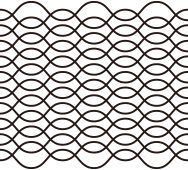
Cotton
Cotton is a natural plant fiber derived from the epidermis of cotton seeds, classified as a seed fiber. Its chemical composition primarily consists of cellulose, with small amounts of proteins, waxes, pectins, and other substances also present.
-

Breathable
-

Environmental
-

Quietness
-

Gentle
-

Recyclable

In the mattress and home textile industry, cotton is widely utilized due to its natural advantages: as a mattress filler, cotton imparts a soft and comfortable texture to products, enhancing sleep quality; simultaneously, in bedding items such as sheets, quilt covers, and pillowcases, cotton has become the predominant fabric thanks to its softness, skin-friendliness, moisture absorption, and breathability. It not only offers consumers a healthy and comfortable sleeping experience but is also highly favored in the market for being cost-effective, eco-friendly, and durable.

Cotton stands out prominently in the mattress and home textile sector, boasting three key advantages: health-conscious and eco-friendly properties, exceptional durability, and cost-effectiveness. As a natural fiber, it contains no chemical additives, significantly reducing the risk of skin irritation and allergies, thereby aligning with the trend of green consumption. Additionally, cotton fabrics treated with special processes exhibit a robust texture, retaining their original color and shape even after multiple washes, which notably enhances product durability and extends their service life.
Cotton raw materials are recommended for use in the comfort layer
-

Cotton fibers possess excellent moisture absorption and breathability. During sleep, the human body continuously expels sweat and moisture, and cotton raw materials can swiftly absorb this moisture and expel it from the mattress through their breathability, maintaining a dry and comfortable sleeping environment.
-

As a natural fiber, cotton boasts exceptional softness. When used as a raw material for the comfort layer of a mattress, it can closely conform to the body's curves, providing personalized support and effectively alleviating pressure points on the body, thus offering a more comfortable sleeping experience.
-

Trachycarpus Fortunei
Learn MoreMattresses made from Trachycarpus fortunei exhibit good resilience and supportive qualities, effectively protecting the health of the human spine.
-

VONATURE AIR™
Learn MoreVONATURE AIR™, also known as Polyolefin Elastomer (POE), colorless or milky white waxy particles, non-toxic, odorless. Melting point: 85 to 110°C.
-

Coconut Fiber
Learn MoreCoir, also known as coconut fiber, is made from the coconut husk, which is present between the outer and inner walls of the coconut.
-

Sisal Fiber
Learn MoreSisal fibers are obtained from the eponymous plant of the genus Agave. Among all natural plant fibers, sisal fibers have the highest elongation value.
-

Corn Fiber
Learn MoreCorn fiber is a synthetic fiber produced using corn, wheat, and other starch-based materials as raw materials, through processes such as polymerization and spinning.
-

Natural Latex
Learn MoreNatural latex, an environmentally friendly adhesive, is the liquid that comes out of the cuts of rubber trees that have been growing for 6-8 years.
-

Other
Learn MoreCotton fiber is a natural fiber, with cellulose as its major constituent. It is also a porous material that allows for effective air permeability, keeping the skin comfortable.
-

Raw Material Application
View NowYou can view introductions to more materials here all at once, making it convenient for you to select and delve deeper into the materials that personally interest you!

Contact Us
Contact Number
Mobile: (86) 15508516927
Mobile: (86) 17761206576
lynn: lynn@vonature.com
miko: miko@vonature.com
Leave your contact information
















